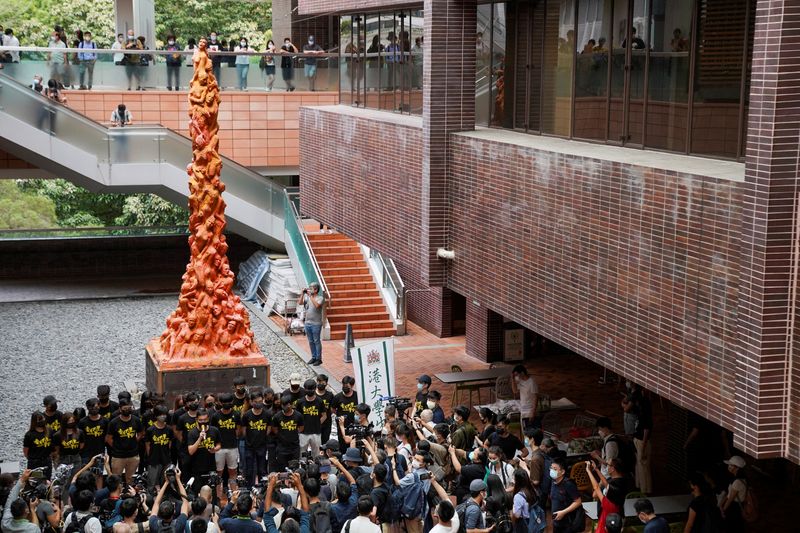HONG KONG (Reuters) -Hong Kong's Security Chief Chris Tang criticised an opinion piece in the Wall Street Journal (WSJ) on a seizure by authorities of a statue commemorating Beijing's Tiananmen Square (NYSE:SQ) crackdown on democracy protesters in 1989.
Tang said in a letter to the newspaper that the WSJ opinion piece, titled "Subversive Art is a crime in Hong Kong", contained "groundless remarks" that mislead readers, according to a copy posted online by the government on Wednesday.
The WSJ did not immediately respond to requests for comment.
The Journal said in its opinion piece that the seizure by Hong Kong Police's National Security Department of the "Pillar of Shame" statue was quietly executed and done without due process.
Tang said this was untrue and that officers took action with a court warrant on Friday and issued a press release on the operation.
"That the opinion piece presented the exhibit of the criminal investigation as an 'artwork' and the case as one concerning mere 'dissent' is totally misleading," Tang said.
Hong Kong law enforcement agencies are "duty-bound" to bring justice to people and entities acting in violation of Hong Kong laws, including the National Security Law, Tang said.
Beijing imposed the security law on Hong Kong in 2020, a move that Western governments have criticised as a tool to crush dissent.
Chinese and Hong Kong authorities say the law, which punishes subversion, collusion with foreign forces and terrorism with up to life in prison, has brought stability to the city after the 2019 protests.
The Pillar of Shame, created by Danish sculptor Jens Galschiot, is an eight metre (26 feet) tall statue depicting dozens of torn and twisted bodies that commemorates protesters killed in the crackdown in and around Tiananmen Square in 1989.
The two-tonne copper Pillar of Shame was first exhibited at a Tiananmen Square commemoration in Hong Kong in 1997, the same year Britain handed the city back to China.
In 2021, the University of Hong Kong dismantled and removed the statue "based on external legal advice and risk assessment for the best interest of the university". It has since been kept in a cargo container on university-owned land.

The seizure comes weeks ahead of the June 4 anniversary of the Tiananmen Square crackdown.
Hong Kong had traditionally held the largest annual vigils in the world to commemorate the crackdown but vigils have been barred by police from taking place since 2020 due to coronavirus restrictions.